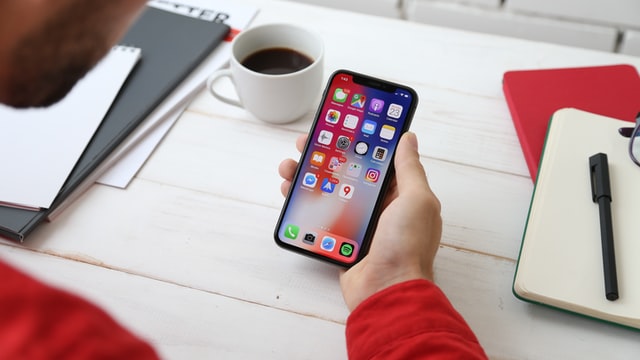I’m into new media. I have a website, Twitter account, four Facebook pages, a LinkedIn profile, an old-school Myspace page, and I’m thinking about adding Tumblr. I use my smartphone for GPS, finding restaurants, playing crossword puzzles, texting, emailing, and sometimes talking. I keep a separate iPod for music, photos, and different apps. I’m fairly tech-ed out.
You would think I would have downloaded a Bible app for my iPod or phone when they first came out.
In a recent article, “iPad Preachers,” Sam Hodges writes about the benefits of Bible apps and preaching from e-readers. It’s better on the environment, less chance of losing or leaving the Bible behind, fewer things to carry when traveling—especially overseas, and ideal for windy days at graveside funeral services.
I completely agree. But I’m attached to my paper Bible.
I use the same Bible I received from my Sunday School program when I left home for college. When I finished college, the same Sunday School program gifted me with a Bible cover because the Bible had become worn. When I finished divinity school, a then-boyfriend’s mother looked at my tattered Bible cover and gave me another one.
This is a well-used Bible. There are notes in the margins of Philippians from the college Bible study I led through Campus Crusade for Christ. I have highlighted my favorite verses to use for benedictions. I still remember how I felt when I marked up Psalm 42 during a tough emotional period of my life. Some pages of Matthew are threatening to fall out. There are the notes for three sermons wedged into the pockets of the cover. I actually remember scriptures by where they are in my Bible, e.g., lower left corner of the right hand side, three-quarters of the way into Exodus.
I also recall memorizing the books of the Bible in Vacation Bible School. I felt pride in knowing how far in to flip when the preacher names the scripture. I come from people whose best records of births, deaths, and marriages are in the family Bible. Having my own Bible was part of what made me a grown-up Christian. It’s part of what makes us “people of the book.”
It’s a peculiarly Protestant itch to hold onto The Word. Wisdom, Logos, Word becoming flesh, Jesus, serious study, the Bible in our own language … all of these are centuries-old hallmarks of Christianity and the Protestant Reformation’s belief that lay people could know God for themselves. The fight to have a Bible in one’s own language, and then translate it into its various versions, children’s picture books and hip hop versions were all about direct access to saving truths.
I see the advantages of e-readers and apps, but I wonder what this means for those of us who have long been people of “The Book.” Becoming people of “the App” ensures the access the Reformation sought, but I’m not sure it makes us more biblically literate. What will “people of the App” leave the believers who come a century or two behind us?
(Originally published with The New Media Project here)




